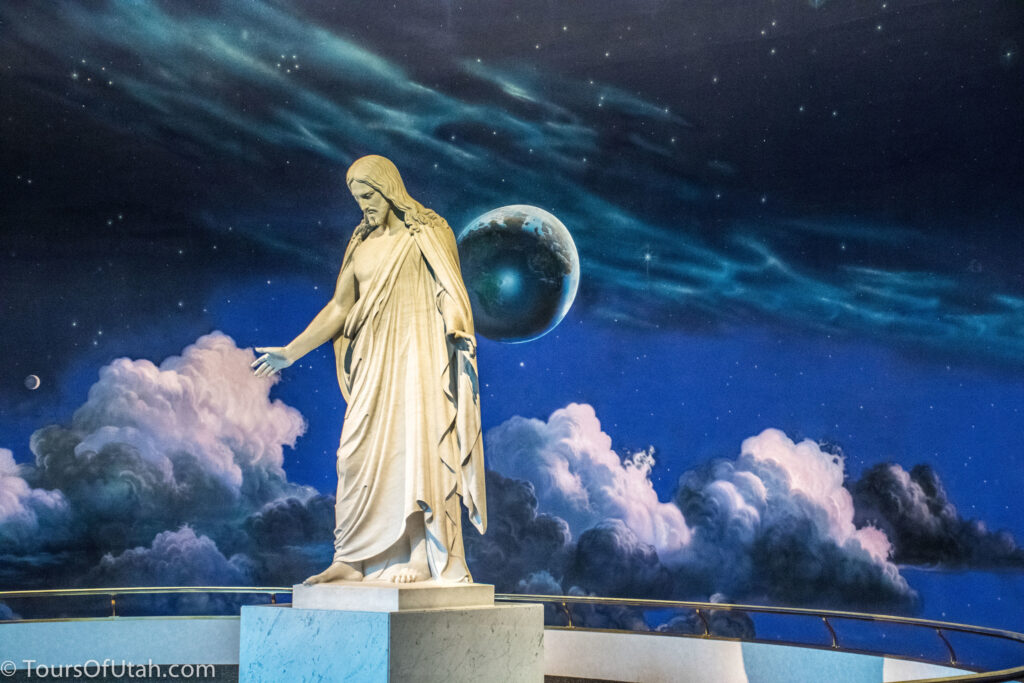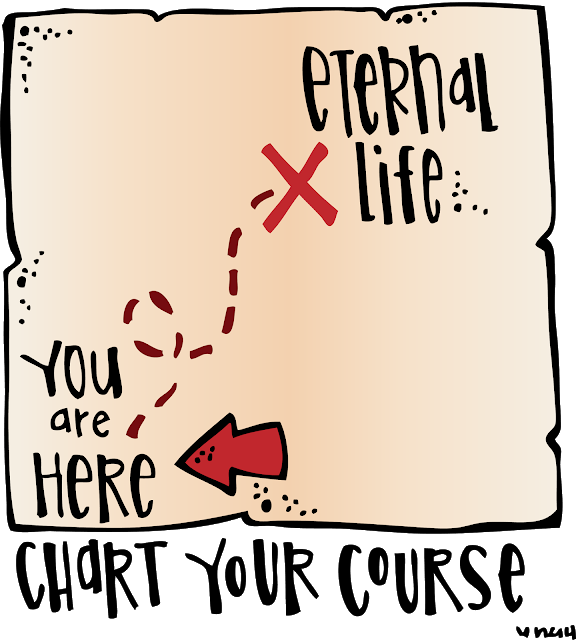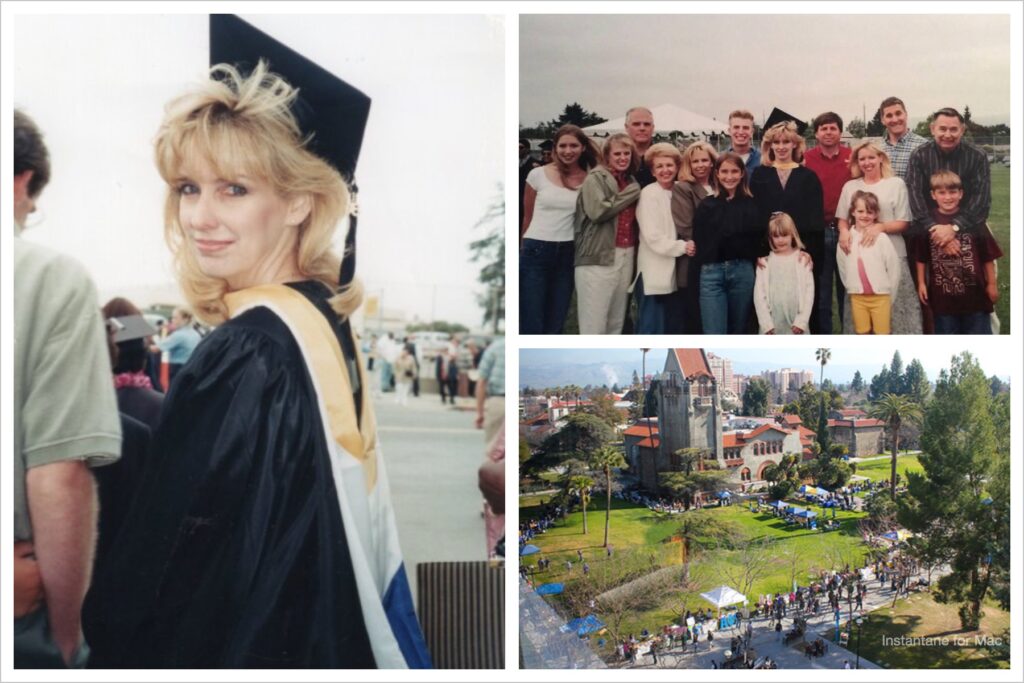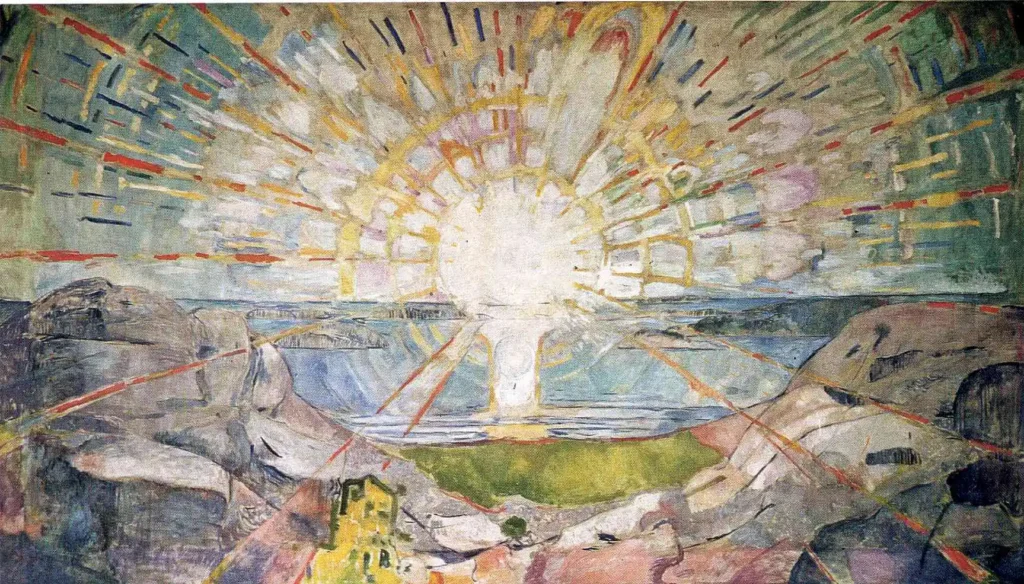Does your mission seem impossible?
You spend too much time reading all those textbooks. Why don’t you read Harry Potter? advised my mom.
You don’t read much fiction do you? observed my sister.
Those topics would interest YOU,” my friend said to me with a hint of condescension. (We had just seated ourselves for a Relief Society meeting when I noticed three words written on the chalkboard: “sexism, racism, and doctrine,” and had pointed them out to my friend.)
My mom, my sister, and my friend all had a point regarding my interests and reading materials. Here’s a sample of books I’ve read and am reading. (And there’s not a fictitious work among them):
- The Psychology of Totalitarianism by Mattias Desmet
- The Strange Death of Europe by Douglas Murray
- The Gnostic Gospels of Thomas, Mary, and John translated by Thomas Edmonds
- A Heretic’s Manifesto Essays on the Unsayable by Brendan O’Neill
- The Intimidation Game by Kimberley Strassel
- Cynical Theories by Helen Pluckrose & James Lindsay
- Panics and Persecutions: 20 Tales of Excommunication in the Digital Age edited by Claire Lehmann
- The Parasitic Mind by Dr. Gad Saad
- The Vision of the Anointed by Thomas Sowell
- Joseph Smith: Rough Rolling Stone by Richard Lyman Bushman
- Women of the New Testament by Camille Fronk Olson
- The Infinite Atonement by Tad Callister
- End of Discussion by Mary Katharine Ham
I’ll ever get around to reading Harry Potter. And, admittedly, I feel a twinge of guilt knowing I’m the only one in my family who hasn’t read any of Jane Austen’s writings; even my brother has read Pride and Prejudice! (I do love movies based on Austen’s novels.) Historical and contemporary non-fiction, religious books, and the scriptures will always be my reading staple. In this post, I discuss the possibility of having and/or discovering our individual foreordained earthly missions. I also wonder if our pre-mortal lives might have been some sort of type and shadow of our lives here in mortality. In no way, do I claim that my personal experiences or insights are doctrinally sound or correct.
Truthfully, it took me a long time to come to terms with my proclivities. I also had a hard time understanding my inclination to study philosophy, argumentation, and current events. As a younger woman, I honestly thought something was wrong with me because my interests were outside the “feminine” realms of traditional American Latter-day Saint women .
Many years of starts and stops accompanied by much prayer, contemplation, and scripture study, helped me to piece together crucial components concerning my role as a Latter-day Saint woman, wife, and mother—in addition to any other potential mortal assignments. It was like assembling the pieces of a vast lifelong (or eternal) puzzle. These particular puzzle pieces eventually pinpointed my careers as a mother to four children and as a college instructor. My education, subsequent career in academia (teaching critical thinking, persuasion, argumentation, and communication) coupled with divine help have led me to this point in teaching and writing while utilizing various avenues and opportunities to influence and persuade.
Our Pre-mortal Existence Was a Battle of Ideas
Scriptural accounts and Latter-day Saint doctrine detail Lucifer’s narcissistic philosophical plan of salvation for us as God’s spirit children. Personal glory, power, control, dominance, and self-aggrandizement were his central themes and desired outcomes. His methods for “saving our souls” involved our forced compliance while in mortality as compared to Christ’s plan that focused on our individual free will and choice. Additionally, Christ selflessly offered to sacrifice Himself to atone for our sins, serving as our Savior and Mediator with God the Father. Lucifer’s philosophy would rob mortals on multi-dimensional levels: mortality would offer limited individual knowledge, no experience with choice, no self-actualization, no free will, no faith while attaining no wisdom. I suspect we would have been plagued with a different brand of uncertainty regarding our worth and abilities.
How can any individual or any group achieve any sort of utopia, nirvana, or celestial glory without exercising these fundamental principles? History testifies of the impossibility of attaining an ideal society without these principles. We can read books and also observe for ourselves similar Luciferian traits in many historical and present-day tyrants: controlling, power-hungry individuals and/or groups who, like Lucifer, disguise themselves as “saviors” who advocate love and justice while promising some sort of equitable utopia—for a terrible price. Don’t get me wrong, like everyone else, I desire a higher level of compassionate humanity and decency in our global society. But, I’m extremely wary of “false saviors” who have caused massive amounts of human suffering with their disastrous utopian attempts. In the end, their methodologies using coercion, intimidation, threats, suppression of free speech, and erosion of liberties always involve grinding others into subjugation, bondage, and ultimate death. Dissenters are imprisoned, tortured, and executed. Free speech, freedom of assembly, the right to dissent, and the right to self-determination are usually the first liberties that are stripped.
Detours and course corrections
“Julie, why do you care so much about all of this?” a friend recently asked me. I responded, “I think I’m supposed to care. I think it’s part of my life’s calling to care. I can’t remember not caring.”
Here’s what I care about:
- The cynical critical theories, postmodernism, intersectionality, and deconstructionist theories which claim that there are no objective truths; there’s only “socially constructed” and subjective truths. During the last 20 years, these theories have been embedded into Western civilization’s institutions and public policymaking—and are quickly unraveling our societal fabric.
- The increased civil unrest and anarchy in North America and Western Europe resulting from the increasingly balkanized identity politics and group think. As the United States’ ongoing cultural and political “cold civil war” becomes more divisive, I believe our society can expect more violence; when we run out of words, we pick up weapons. (As we know, 3rd Nephi, in the Book of Mormon, gives descriptive parallels to today’s society.)
Anyway, after the above mentioned conversation with my friend, I wondered (for the millionth time) why I care so much about this stuff. In those moments, impressions entered my mind, unfolding a new perspective: God had planted these sociological, philosophical, and spiritual concerns within my heart. He is the one who had lit this fire in my soul and prompted me to pursue higher education in communication studies and a career in teaching. Consequently, my academic career had positioned me within the “battle of ideas” arena—particularly in reasoning, persuasion, and argument.

My impressions also seemed to be linked with scriptural teachings and the doctrines of The Church of Jesus Christ of Latter-day Saints. Namely, the doctrine of our pre-mortal existence and its culmination in a philosophical battle for eternal souls. LDS scripture recounts the heroic actions of Michael the Archangel who led the charge against Lucifer’s authoritarian proposal to save our souls through forced compliance devoid of individual free will. Along with most pre-mortal spirits, we rejected Lucifer’s idea of a micro-managed earthly existence, opting instead to put our faith in Jesus Christ, and His ability to achieve perfection and atone for our sins during His mortal mission. And Christ delivered! He willingly, faithfully, and perfectly fulfilled His foreordained mission.
Hopefully, we, too, can deliver in our individual mortal missions.
The late Apostle Neal A. Maxwell spoke specifically about our pre-mortal activities in connection with our mortal missions:
There is another type of foreordination . . . labeled ‘foredesignation’ to distinguish it from a priesthood ordination. Mary, the mortal mother of Jesus, is an example of one who was foredesignated to a significant and sacred mission in life (see 1 Nephi 11:18). Many other women through the ages and throughout the nations of the earth have shaped the history of the world and furthered the works of God through their service to their families, the Church, and society. Surely many righteous daughters of God were foredesignated to missions of secular as well as spiritual significance. Though not ordained to priesthood callings, their foredesignations to such vital missions in mortality are no less important. President Spencer W. Kimball emphasized that ‘we had full equality as his spirit children. We have equality as recipients of God’s perfected love for each of us… Within those great assurances, however, our roles and assignments differ. These are eternal differences… Remember, in the world before we came here, faithful women were given certain assignments while faithful men were foreordained to certain priesthood tasks. While we do not now remember the particulars, this does not alter the glorious reality of what we once agreed to.“
https://www.churchofjesuschrist.org/study/general-conference/1985/10/premortality-a-glorious-reality?lang=eng

While receiving these impressions, I also wondered about my own pre-mortal activities: Were my pre-mortal activities a precursor to my mortal activities and mission? Could I have been a teacher or advocate of Christ’s plan of salvation? Did I persuade and reason with other souls regarding Christ’s philosophies such as free agency, choice, individual worth, self-determination, and personal accountability?
In short, could our pre-mortal existences be a sort of “type and shadow” of our mortal lives? If so, talk about a parallel universe. I also pondered the idea of being specifically tutored in pre-mortality before entering mortality—sort of like being “pre-packaged” at birth. Thus, as we grow into adulthood and partake of the gospel’s living water (through faith and prayer), our pre-packaged seeds grow and bear fruit.
The scriptures repeatedly tell us about a loving God who reveals significant truths to those who ask in faith. I believe that some revealed truths can come packaged as glimpses of eternal memories. Indeed, a revealed memory of our eternal past can help us fulfill our earthly mission. My children’s patriarchal blessings admonish each of them to pray diligently to find out who they were before they were born, and to apply this knowledge to help them achieve their divine assignments here in mortality.
When we know who we were, we can know who we are to be.
Have you too, dear readers, struggled with your life’s purpose or mission? Do you know where you’re going? Do you know where you’ve been? Do you know how to get to your destination? Have you ever wanted to give up? Have you run off-course? Do you feel too old to “start again?” Perhaps your life’s map reads similarly to mine.

What does your life map look like?
My life’s map contains many detours and a couple of unfulfilled dreams (and that’s ok). I’ll share a few of the countless detours I’ve taken so far:

As a 20-year-old woman, I began my junior year of college at Brigham Young University in Provo, Utah after having graduated from my local community college with an A.A. degree in English.
Detour:
After my first semester at BYU, I changed my major to history, preparing for a teaching career. (I come from a family of educators. My father was a college English instructor and three of my siblings work in education.)
On course:
Naturally, a teaching career made sense to me.
Detour:
During my second semester at BYU, my college plans took another turn when I met my future husband and got engaged. Marriage, helping my husband finish college, and raising four children became my focus.
On course:
When my youngest child entered kindergarten, I returned to school. Once again, I changed my college major to pursue my true love: watercolor painting. My new goal was to attain a Master of Fine Arts degree, set up my own studio, and sell my paintings.
Detour:
Returning to school after a 12-year hiatus meant new general education requirements not previously required under my Associate of Arts degree; new courses such as ethnic studies, science, and math. The idea of math classes caused me great anxiety; I loathed math. Also, changing to an art major meant taking a lot of lower-division art classes. Consequently, I was back at the community college level for another two and a half years.
Detour:
New California general education requirements also meant passing an upper-division math course: algebra. Two weeks into this course, I became completely and overwhelmingly lost. I dropped the class.
Detour:
With no other choice, I took remedial math courses in preparation for the algebra course. (When walking down a hall on my way to teach my own classes, I shudder whenever I pass a classroom where math is being taught.) These math courses set me back almost two years. Still, I plowed through.
On course:
Finally, armed with a new knowledge of algebra, color theory, and painting styles, I was ready to transfer to the local university for upper-division courses. I looked forward to honing my craft in watercolor. I was especially intrigued by realistic floral paintings. I hoped to one day create inspiring art. To this day, beautiful watercolors make my heart sing. Below are watercolors by Soon Y. Warren. I marvel at her skill in creating such beautiful imagery on a blank piece of paper!

Detour: Transferring to a California state university
I will never forget that day. Sitting in his office, my advisor and I examined the university’s catalog and course schedules. My hopes faltered while my dread surged. To earn just one unit of credit, the university required my attendance for lab work two days a week (not counting class time) at three-hour intervals. In the afternoon. When my kids come home from school. For one lousy unit of credit. And that was just for one art class.
Why hadn’t I anticipated these obstacles before choosing art as a major?! All that work—for what? On the verge of tears, I told my advisor, “I have four children. They have homework and after-school activities. There’s no way I can attend all these labs.” His shocked look was my answer. “So what do I do now?” I asked him. Almost immediately, he answered, “Communications.” I’d never heard of communications as a major. Still, it was one of those light bulb moments. “And,” he said, “you already have the needed credits to transfer to the university.” Feeling a wobbly but growing inner peace, I said, “Ok, let’s do it.”

On course:
That was nearly 25 years ago. I haven’t picked up a watercolor brush since. And I have no regrets. Furthermore, I never did leave the university. After earning my degrees and my training in classroom teaching, I have taught general education courses at the same university for 22 years now. I have also taught at local community colleges and at a private Catholic university.
Every now and then, I stare wistfully at beautiful paintings. I would love to be a professionally skilled watercolorist. Still, I feel great peace and joy knowing that God has been “a lamp unto my feet, and light unto my path” (Psalm 119:105) in revealing and helping me to achieve one of my life’s purposes.
What were you foreordained to do?
BYU professor Jeffrey A. Thompson gave October’s BYU Provo devotional talk entitled, “What Is Your Calling in Life?” His professional journey sounded like mine. Again, I emphasize that our individual callings may be multi-dimensional and not necessarily “professionally” oriented. Professor Thompson states:
What is your calling in life? If you don’t know yet, how do you find out? For many, deciding what to do with your life can feel like a personal crisis that doesn’t go away. I want you to understand that finding my calling in life was not easy. My career path was circuitous, and I often felt great anxiety. I wanted to care passionately about my work, but for years I had no idea what that work should be. Several times I felt utterly adrift, as if I had somehow missed the path I should have taken and could never get back on it. In hindsight, those moments are important parts of the tapestry of my career. Each thread that felt out of place at the time now provides structure to the pattern of my life. They helped me distinguish and define my calling. I learned to quote Romans 8:28, that all things do indeed ‘work together for good to them that love God, to them who are the called according to his purpose.
Professor Thompson continues by delving into the notion of our life’s calling:
John Calvin [taught that] it wasn’t our position in the social structure that determined God’s calling for us. Rather, he argued that God endows each of us with particular talents and gifts, and that it is our calling to discover those gifts and to seek out ways to use them in the service of our fellowmen. So the very roots of the idea of a professional calling are distinctly religious. Ironically, the world still embraces the notion of a professional calling, but it has almost entirely abandoned the spiritual roots of the idea.
He further discusses the scripture in the Doctrine and Covenants, 58:28 regarding the “power within” to “be anxiously engaged in a good cause . . .”
You personally are full of divine capacities to do good that you probably don’t even fully appreciate. These verses testify that you are not part of a lottery system for life callings. You have a calling in life: to pursue good causes. And you have been given power to do just that. But knowing that you have power to do good works is one thing; knowing specifically what you ought to do is quite another. How do you find your particular calling? That’s the burning question for many of us.
Dr. Thompson describes some of the spiritual gifts illustrated in D&C 46: 11-12:
There is another type of foreordination . . . labeled ‘foredesignation’ to distinguish it from a priesthood ordination. Mary, the mortal mother of Jesus, is an example of one who was foredesignated to a significant and sacred mission in life (see 1 Nephi 11:18). Many other women through the ages and throughout the nations of the earth have shaped the history of the world and furthered the works of God through their service to their families, the Church, and society. Surely many righteous daughters of God were foredesignated to missions of secular as well as spiritual significance. Though not ordained to priesthood callings, their foredesignations to such vital missions in mortality are no less important. President Spencer W. Kimball emphasized that ‘we had full equality as his spirit children. We have equality as recipients of God’s perfected love for each of us . . . Within those great assurances, however, our roles and assignments differ. These are eternal differences . . . Remember, in the world before we came here, faithful women were given certain assignments while faithful men were foreordained to certain priesthood tasks. While we do not now remember the particulars, this does not alter the glorious reality of what we once agreed to.
Here’s the link to his talk:

A BYU Idaho General Conference index offers some interesting perspectives from former LDS prophets:
In the October 1973 General Conference, President Harold B. Lee utilized D&C 121:34-36 to illustrate the point that earthly faithfulness is required for the fulfillment of pre-mortal foreordinations. He taught that ‘many are called [foreordained], but few are chosen [foreordination fulfilled]’ the revelation then asks, ‘And why are they not chosen?’ In other words, why are some pre-mortally foreordained and yet fail on earth to live up to the blessings, responsibilities, and missions that were conferred upon them? The scripture, President Lee explained, suggests two answers. First, ‘Because their hearts are set so much upon the things of this world,’ and second, because they ‘aspire to the honors of men’ (D&C 121:35). The doctrine of foreordination carries with it heavy responsibilities. We cannot neglect those responsibilities but must be constantly vigilant in living so that our foreordinations, whatever they may be, can be fulfilled and God’s work may be furthered.
President Wilford Woodruff counseled:
We have been raised up of the Lord to take this kingdom and bear if off. This is our duty; but if we neglect our duty and set our hearts upon the things of this world, we will be sorry for it. We ought to understand the responsibility that rests upon us. We should gird up our loins and put on the whole armor of God…then let us do our duty. Let us keep the commandments of God, let us be faithful to the end, so that when we go into the spirit world and look back upon our history, we may be satisfied.”To access the sources and footnotes, here’s the link: https://magazine.byu.edu/article/lds-general-conference-scripture-index-launched/
I love this quote from Mahatma Gandhi: Whatever you do will be insignificant, but it is very important that you do it.
Here’s to making our “mission impossible” possible!
Julie


